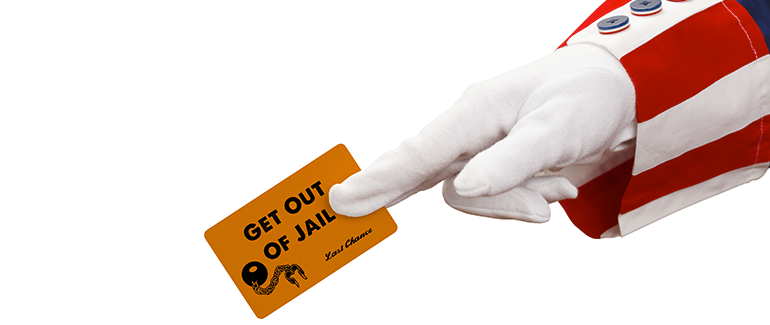The right to grant pardons is one of the most powerful tools in the president’s belt. It gives the president the ability completely waive an offense off of a person’s record and terminate the rest of their prison sentence. This right belongs only to the president, so it’s surprising that President Obama hasn’t made much use of his pardon powers. In fact, Obama has only granted a total of 64 pardons since the beginning of his first term in early 2009. This is the lowest amount of pardons granted by a President who served at least one full term since John Adams, the 2nd president of the United States.
Obama’s hesitation to grant pardons demonstrates the sensitive nature of the power. Many people view presidential pardons as being “mysterious, capricious, and possibly corrupt,” according to former U.S. pardon attorney Margaret Love. In the last few decades, the president’s application of pardons has been somewhat questionable, leading to public scrutiny and mistrust of the practice. In his final days in office, former President Bill Clinton granted pardons to his half-brother, former business partners, and cabinet members, and to campaign donors. One of the more high-profile pardons in history occurred in 1974 when former President Gerald Ford excused his predecessor Richard Nixon of all indictments pending against him. The move was so unpopular that many believed it to be the reason that Ford did not win reelection in the following term.
With pardons getting such a bad reputation in the last few years, one must naturally wonder why the president received these powers in the first place. Pardons actually serve a major political role when applied justly and properly. Alexander Hamilton explained the role of the pardon during the drafting of the Constitution. It was designed to allow the president to express his dissent against unfavorable policies by granting clemency to those who had been punished under that policy. When the constitution was drafted, George Washington used this as the justification behind granting clemency to those who were punished for their involvement in rebellions during the American Revolution. He was expressing his disagreement with outdated policies that had restricted free speech and punished individuals for their involvement in protests.
The right to pardon was also intended to give the president room to give mercy to offenders who did not seem to deserve a harsh punishment but received one due to the requirements of the law. For example, in 2013 President Obama lessened the sentence of Stephanie George, a Florida woman who received a life sentence in 1997 for hiding her boyfriend’s crack cocaine stash in her home. This case received significant national attention, with civil rights groups urging lawmakers to reconsider the outcome of the trial. Even the judge who gave the verdict agreed that Ms. George’s punishment was far too harsh, saying “your role has basically been as a girlfriend and bag holder and money holder but not actively involved in the drug dealing, so certainly in my judgment, it does not warrant a life sentence.”
Cases like Stephanie George’s have come back into the national spotlight recently, on the heels of Obama announcing that he has decided to grant clemency to 22 drug offenders earlier this year. His reasoning aligns with Alexander Hamilton’s justifications behind the right to pardon. Obama claims that the laws that put these offenders in prison are outdated and that if someone was charged with the exact same crime today they would receive a far less severe sentence. By granting clemency to these offenders, Obama is expressing his dissent against the overly severe criminalization of drug offenses, which is a growing concern in today’s overcrowded prison system. Obama also only chose individuals whose criminal actions did not reflect the severity of their punishment. These were all non-violent criminals who had no affiliation with criminal organizations and posed little risk to be repeat offenders if released.
This recent wave of pardons by Obama sends a strong signal to the American public. Not only is Obama making a statement about his disapproval of the over-criminalization of drug offenses, but he is also making a broader statement about the right to have a second chance in this country. Obama sent a letter to each person he granted a pardon to in this recent wave, encouraging them to take advantage of their opportunities outside of prison.
“I am granting your application because you have demonstrated the potential to turn your life around,” Obama wrote. “You will also influence, through your example, the possibility that others in your circumstances get their own second chance in the future.“




